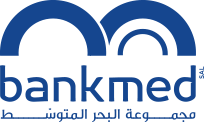
Henri Philippe Pharaon, was a Lebanese art collector, sportsman, politician, and businessman. He played a crucial role in securing Lebanon's independence from France and served as foreign minister and other cabinet positions. He was assassinated in 1993.

The lira or pound is the currency of Lebanon. It was formerly divided into 100 piastres but, because of high inflation during the Lebanese Civil War (1975–1990), subunits were discontinued.
The Big Four is the colloquial name given to the four main banks in several countries where the banking industry is dominated by just four institutions and where the phrase has thus gained relevance. Some countries include more or fewer institutions in such rankings, leading to other names such as Big Three, Big Five, or Big Six.
Michel Chiha (1891–1954) was a Lebanese banker, a politician, writer and journalist. Along with Charles Corm, Petro Trad and Omar Daouk, he is considered one of the fathers of the Lebanese Constitution. His ideas and actions have had an important influence on the shaping of the modern Lebanon.

L'Orient-Le Jour is a French-language daily newspaper in Lebanon. Its English-language edition is L'Orient Today.

BLC Bank SAL (BLC:LB) is a Lebanese financial institution offering banking, insurance and asset management services. BLC Bank subsidiaries are BLC Finance SAL and BLC Services SAL.

Byblos Bank is a Lebanese bank established in 1963 and headquartered in Beirut, Lebanon. It is the country’s third largest bank by assets. It is one of the Alpha banks in Lebanon, along with Banque Libano-Française S.A.L., Bank Audi, BLOM Bank, and Fransabank, which are its main competitors. As at 31 July 2018, it operates 88 branches in Lebanon.
François Semaan Bassil is a prominent Lebanese banker. He was chairman and General Manager of Byblos Bank, one of Lebanon's top three banks from July 1979 to July 2015, and has served as chairman of the Board of the Association of Banks in Lebanon (ABL) for four terms. He currently holds the position of Chairman of Byblos Bank Group, an entity composed of banks and subsidiaries of Byblos Bank S.A.L. In 2015, Bassil was named in Global Finance Magazine’s first annual list of Who’s Who in The Middle East.
Banque Libano-Française is a Lebanese bank holding number 10 on Banque du Liban List of Banks. It was established as a joint stock company in 1967. Its head office is located at the Beirut Liberty Plaza Building, Hamra District, Beirut, Lebanon.

BLOM BANK is a Lebanese bank established in 1951 and headquartered in Beirut. Providing banking services such as "commercial, corporate, private, investment, retail, Islamic banking, asset and wealth management, capital market services, and insurance products," BLOM Bank is one of Lebanon's largest banks and has its shares listed on the Beirut Stock Exchange and the Luxembourg Stock Exchange.
Semaan Bassil is the Chairman - General Manager of Byblos Bank S.A.L., Lebanon’s third largest listed bank, and Chairman - General Manager of Byblos Invest Bank S.A.L. He also sits on the boards of several Byblos Bank subsidiaries, and is a member of the Board of the Association of Banks in Lebanon (ABL).
Joumana Bassil Chelala is the Deputy General Manager and head of Group Consumer Banking at Byblos Bank S.A.L., Lebanon’s third largest listed bank. She was featured on Forbes Middle East’s list of Most Powerful Arab Women in 2014, 2015, and 2017, and was featured on the magazine’s 2018 lists of the Middle East’s Most Influential Women and the top 15 Most Powerful Lebanese businesswomen. She also sits on the board of directors of the Chamber of Commerce, Industry, and Agriculture of Beirut and Mount Lebanon.
Chiha is an Arabic-based surname. It may refer to:

Bankmed SAL is a Lebanese bank, established in 1944, owned by the holding company GroupMed. It is one of Lebanon’s top five banks by both assets and deposits, and has 36 branches in Lebanon, and one in Geneva. Bankmed is owned by the family of Rafic Hariri, the former prime minister and billionaire businessman who was assassinated in 2005. The bank is also the largest shareholder in Solidere, the real estate company that rebuilt Beirut's Central District after the Lebanese Civil War.
First National Bank is a Lebanese financial bank, established in the year 1991 under the name.

Intercontinental Bank of Lebanon is a Lebanese Bank with headquarters and main branch located in Achrafieh, Beirut, Lebanon.
Jamal Trust Bank was a Lebanese bank founded in 1963, which was forced to close under US sanctions in 2019 for "helping to fund" the Lebanese Shiite Hezbollah movement in Lebanon. JBL had 25 branches in Lebanon, and representative offices in Nigeria, the Ivory Coast and Britain.







